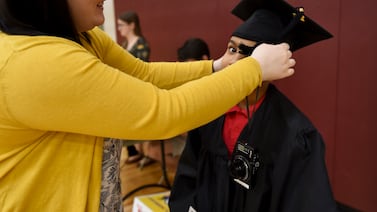Philadelphia school district officials are urging students and staff to remain indoors and limit time outside as wildfire smoke from Canada continues to permeate the city and create unhealthy air conditions across the Northeast.
School buildings will remain open in Philadelphia, but Christina Clark, a district spokesperson , said in a statement Wednesday afternoon that “extended outside activities,” including field trips and field days, “should be postponed.”
Clark said school field trips, recess and all outside activities should be moved indoors or canceled.
Clark also said the district’s athletics office “will support schools in rescheduling outdoor athletic games that were scheduled for today.”
The statement comes as the Philadelphia Department of Public Health issued a warning that the city’s air quality designation has been changed from “Code Orange” to “Code Red.” City public health officials said the air is “unhealthy to breathe,” and some members of the general public — especially the very young and those with preexisting health issues — may experience “more serious health effects.”
She noted the district “will continue to follow guidance from the City, and will provide updates if the air quality status changes today or later this week.”
According to data from the University of Pennsylvania, 21% of Philadelphia children have asthma — more than double the national rate.
City health officials say residents should “strongly consider” canceling outdoor events; avoid exercising outdoors; wear an N-95 or KN-95 mask if going outside is unavoidable; avoid areas where air pollution may be high, like main streets or highways; close all windows and doors to minimize air pollution in the home; and use fans inside.
Officials have issued similar warnings to schools in New Jersey and New York City.
This is not the first environmental concern to impact Philadelphia students and teachers this school year. Last week, 90 schools in the city closed due to excessive heat, and several buildings over the past few months have closed following the discovery of damaged asbestos.
Clark said although Wednesday’s weather is warm, “the District does not expect indoor temperatures to exceed levels that would warrant early dismissal.”
Carly Sitrin is the bureau chief for Chalkbeat Philadelphia. Contact Carly at csitrin@chalkbeat.org.






